Tragedies; Touched & Transformed - Sermon for June 27, 2021 (Fifth Sunday After Pentecost)6/26/2021 Scripture Readings: 2 Samuel 1:1, 17–27 | Psalm 130 | 2 Corinthians 8:7–15 | Mark 5:21–43
"Do not fear, only believe." (Mark 5:36) This week we’ve been given another glimpse of the tragic side of our country’s story: more than 750 unmarked graves were found at the old site of Marieval Indian Residential School in Saskatchewan. As horrible as this fact is, there’s likely to be more such discoveries in the days to come, bringing to light the heart-rending traumas so many indigenous people, families, and communities have faced over the years… stories we are all tied to as both Christians and Canadians. It was our Christian organizations and our Government that were responsible for running these schools; enacting policies and plans that we now know were designed to destroy. As the gravity of these tragedies begins to be widely recognized, it’s still unclear to many of us how best to bring about restoration. But it is clear that this work needs to happen… to begin and carry on… and that we are all required to be a part of the healing work ahead. At it’s heart, the Christian Gospel, after all, is a story of healing and hope… of life being restored and renewed, even when that seems impossible. Today, our reading from the Gospel of Mark points us in this direction, with the stories of two women… two daughters… whose own tragedies were turned upside down by the touch of Jesus. Last week we heard St. Mark describe Christ as the Lord of Creation; completely calming the terrible storm, simply with a word. Today we hear St. Mark describe Christ’s power over sickness and death… portraying Jesus as the one and only Lord of Life, by tying together the stories of two very different lives. St. Mark starts off by introducing us to Jairus: a local synagogue leader, who comes to Jesus looking for help. We’re told his 12-year-old daughter is on the verge of death. As a parent of a young daughter myself, this part of the story makes me tremble. Few things can frighten parents more than to have their children suffer, and be helpless to stop it. So, throwing public opinion to the wind, this desperate father throws himself at Jesus’ feet, and begs Him to come and rescue his girl before it’s too late. Here is this honoured, respectable man, urgently, publicly pleading with Jesus on behalf of his beloved child, who cannot plead for herself. “My little daughter is at the point of death”, he says to Jesus. “Come and lay your hands on her, so that she may be made well, and live.” (Mark 5:23). And just as we’d suspect, Jesus is moved by this man’s pleas. And so they head to Jairus’ house, followed by a crowd. It's here, on the road, that St. Mark introduces us to another character: a women, also in need of help, but with a very different story. St. Mark doesn’t tell us her name, only that she has been suffering… hemorrhaging, bleeding continuously for years. As her story unfolds, it’s clear that she’s in desperate need as well: having spent all that she had, seeking medical assistance, though her condition only worsened, with no sign of relief. But unlike Jairus, who came to Jesus directly to plead for his daughter, this woman could only dare to approach Jesus while hidden among the crowd. Unlike the daughter of Jairus, we don’t know how old she was, only that she had been suffering for 12 years, as long as the first child had been alive. Unlike Jairus’ daughter, who had a prominent parent to plead for their beloved child, this women had no one to help her… she’s pictured as being alone. But just like Jairus, this women had also placed all her hope in Jesus, trusting that she could find the healing she needed… if she could only connect with Him. While Jairus publicly begged Jesus to lay His hands on his little girl in order to restore her to life, this woman could only whisper to herself: “If I but touch his clothes, I will be made well” (Mark 5:28). And so, well hidden among the crowd, this desperate woman reaches out to Jesus, touching His cloak as He passed. And then everything changed. After all, who knows what will happen if we reach out in faith to Jesus? What kind of power we might encounter? What new twist might appear in our stories? For this suffering woman, the instant she touched Jesus she knew she had been healed. All of her hopes came bursting to life… but along with them came fear. Something had happened that she hadn’t counted on: her healing hadn’t stayed hidden! Jesus had stopped in His tracks, and turned around asking aloud: “Who touched my clothes?” (Mark 5:30). Even in the crush of the crowd, Jesus had noticed that someone had reached out to Him… and even though she had been healed, and her long suffering would now be at an end, the woman now finds herself facing Jesus and trembling with fear. Why? Why was she now so afraid that her act of faith would be found out? She had just received a miracle that had given her back her health. You’d think she’d be excited, overjoyed, eager to spread the news. Was she shy? Intimidated by being singled out by this important and powerful rabbi? Was she worried about what others in the crowd thought of her faith? After this truly life-changing moment, why is it that she’s afraid? Though the answer isn’t as obvious to us as it would be to folks back then… it’s clear there’s much more to this woman’s story… much more pain, and shame, and suffering… that she had faced, and which all made her uncertain her act would be welcomed by Jesus at all. She was afraid because she had crossed a serious line by reaching out and touching Him. What line? The line of holiness. Of spiritual sacredness. Laid out in the Laws of God, given to Israel long ago. In the book of Leviticus, the Laws set out some very specific rules for how to avoid becoming ritually unclean, that is, unready to enter into the presence of the Living God, as well as how to be made clean again, which happened fairly regularly. Because of its connection to both life and death, blood and other bodily fluids had strong symbolic meanings, not only in Israelite culture, but among many ancient Near Eastern peoples. In that context, something as natural and frequent as menstrual bleeding would make women ‘ceremonially impure’, or ‘unclean’ for a brief time. But in Leviticus 15:25, the Law addresses another scenario: if a woman keeps bleeding, she keeps on being considered unclean. “If a woman has a discharge of blood for many days, not at the time of her impurity, or if she has a discharge beyond the time of her impurity, all the days of the discharge she shall continue in uncleanness; as in the days of her impurity, she shall be unclean.” Because of the nature of her illness, because her bleeding never ceased for 12 long years, she was considered unclean for all the years of her suffering. There was no chance for ritual restoration; instead she was cut off from the spiritual life of her community, and close contact with others as well. Religiously speaking, she was untouchable. Much like we have been practicing ‘social-distancing’ in these days of COVID-19 in order to keep the virus from spreading from person to person, there were rules back then about not coming into contact with those who were ritually unclean, or else you risked becoming unclean as well… at least for a time. Think of that for a minute. We’re all getting tired of the isolation and distance we feel from one another after cutting down our close contact with those we love for a little over a year. Imagine this woman, cut off for 12 years, while everyone else around her could go on with life. For her to step into that busy crowd, she was breaking her self-isolation, openly spreading her ‘unclean’ state. More than that, she was intentionally making Jesus, a powerful rabbi, unclean. She planned to secretly reach out to Him, even though this would still be considered wrong. Her desperation led her to draw near, hoping that nobody would notice. But Jesus noticed. Jesus stopped and sought out the one who had reached out to Him. So trembling, she falls down before Him, and confesses everything. She tells Him her whole sad story… unsure of what will happen next. This too is a sacred moment: the opening up of a heart, sharing a story filled with pain, and hopes, and shame, and longing. It takes faith to reach out… to seek to make that first connection. And it takes faith to entrust our stories with somebody else. To give them our whole story, with all of it’s joys and tragedies. In the midst of that crowd. In that time of urgency, Jesus stopped to receive the story of this scared and suffering woman. And instead of dismissing her, or condemning her deed done in desperation, Jesus reaches out to her in her pain and isolation, and draws her close, reminding her with a word that she is welcome: “Daughter,” He says to her. No longer alone. No longer cut off. She belongs! She is welcome! She is blessed, and brought back to life! “Daughter, your faith has made you well; go in peace, and be healed of your disease.” (Mark 5:34). Untouched by her uncleanness, Jesus makes her holy, and whole again. Restoring her to life in every sense of the word. Right here, the story switches again, as messengers come from Jairus’ house telling him that they’re to late. That his beloved daughter has died. This time Christ doesn’t hesitate one second… calling this desperate father to trust Him. “Do not fear, only believe.” (Mark 5:36). Remember the miracle that had just taken place before his very own eyes, and trust in the One who had just restored that woman to life … the One who was still with him. In the words of the scholar Donald English: “If Jesus remains with you, there is no ground for fear. Trust the person, not the circumstances. Jairus had just witnessed a lonely, sick and shunned woman manage to do this very thing. He must also believe, because Jesus had shown his intention to make the girl well. It is significant that the tense for believing means ‘keep on believing’… The bridge from the one to the other is Jesus’ presence to heal the girl. Jairus had begun well... He must not lose faith now.”[1] At this crucial moment, when all hope crashes down, and darkness is all one can see, Jesus called Jairus, and calls each one of us to keep trusting Him. Sometimes restoration happens all at once. Sometimes it’s a long hard journey. Sometimes it seems like the whole world will have to change for the story to turn out right. But these stories from Mark’s Gospel remind us that we can entrust our stories to Jesus. That we can draw near to Him, in whatever way we can, and place our pain, our hopes, our shames, our whole lives in His hands… and that His touch can transform even our darkest tragedies. That in Christ we encounter the compassionate power of the Living God, and find ourselves embraced by the Risen Lord of Life. As we look around and find ourselves facing our world’s desperate need for restoration… for genuine healing, and enduring hope… our task is to trust in our Saviour, Jesus, and let Him reach out through us so that our neighbours, our loved ones, and strangers, can come into contact with His rescuing love. To stop and attend to their stories that stand in need of our understanding, gentleness, courage, and even our own confessions… confident, that Jesus, the Risen Lord of Life wants to work through His people, bringing the truth to light in order to bring God’s restoration and wholeness to His broken world. When Jesus finally drew near the beloved but now lifeless daughter of Jairus, He reached out and gently took her hand in His own and said: “Little girl, arise.” Beyond all hope, He raised her from the grave and gave her life again. Through His Spirit at work in us, may we too trust Jesus and reach out our hands so that He can help all those around us to rise again and find New Life. Amen. [1] Donald English, The Message of Mark: The Mystery of Faith, The Bible Speaks Today (Leicester, England; Downers Grove, IL: InterVarsity Press, 1992), 115–116.
0 Comments
Our service of Morning Prayer, Bulletin, & Sermon this week can be found here: Our All-Ages Song for this season can be found here: And our Songs for this week can be found here: Giants, Storms, and our Strong Saviour - Sermon for June 20, 2021 (Fourth Sunday After Pentecost)6/20/2021 Scripture Readings: 1 Samuel 17:1a, 4–11, 19–23, 32–49 | Psalm 9:9–20 | 2 Corinthians 6:1–13 | Mark 4:35–41
“He said to them, ‘Why are you afraid? Have you still no faith?’” (Mark 4:40). What are you afraid of? What are we afraid of today? I know this can be a deeply personal and uncomfortable question. One we may not be all that eager to answer, or even think about. Each of us have our own struggles… our own scars, wounds, and worries that can suddenly stir up great storms within us, or leave us feeling paralyzed. This past year our whole world has faced a prolonged season of heightened anxiety… hitting so many, especially those most vulnerable, with big reasons to be afraid: afraid of sickness and death; afraid of financial instability and loss; afraid of isolation from family and friends… afraid of our mistakes… and having them come to light. How are we going to get COVID-19 under control? How are we going to resolve deep seeded injustices? How are we going to preserve our planet? Prepare for our future? Provide for our loved ones? When what matters to us is under threat, it’s natural to be afraid. But what helps us conquer our fear is finding something, or Someone that is stronger than all of the foes and forces that would otherwise overwhelm us. From giants to storms, our Scripture readings today have a lot to tell us about faithfulness in the face of truly fearful circumstances. Today we have heard to stories that we have likely heard before… two dramatic episodes in the biblical narrative that have been a source of inspiration and hope for believers for centuries: David facing Goliath, and Jesus calming the storm. On the surface, they both seem to be about overcoming overwhelming odds. About the importance of not giving in to our fears… no matter what. But as familiar as these stories may be, there’s more going on than we often assume. And reading them together may help us discern their deeper message of hope… and perhaps help us to discover that these stories are not primarily about us… about our actions, our battles, what we need to do to overcome. These stories are about the power of God, and they point us to our Saviour. Turning to our reading from 1 Samuel, we heard the story of David: the brave young shepherd who steps up to fight the fearsome Philistine champion Goliath, when the rest of Israel’s soldiers were left trembling in fear. This is one of those famous stories used to lift up the victorious ‘underdog’… the unlikely hero who overcomes all odds and wins the day, a theme that’s replayed, again and again, in all sorts of novels, stories, and films. We find these kinds of stories exciting, but even more than that, they are often held up as examples of what can be possible in our own lives… of what we too could achieve if we are willing to face our fears. Just as David defeated Goliath, maybe we can take on all our troubles too… if only we can find the courage, the inner strength to overcome. This kind of reading seems right to us… it fits with what we might think the story’s about. A straightforward moral example for us to learn from and put into practice. But the story of David does not stand alone: it belongs to the much bigger story of what the Living God Himself is doing to rescue His people… and rescue His world. The point of this part of the story is not that just anyone could have beaten Goliath, precisely because David is not just anyone anymore! Last week we heard, (in 1 Samuel 16), that this young shepherd had been chosen by God Himself to replace Saul as the anointed King of Israel. Though the time had not yet come for Saul to fall, and for David to be raised to the throne, this episode with Goliath marks the beginning of that journey: of David serving as God’s faithful servant, when all others fail… overcoming the forces opposed to God’s kingdom by trusting in the LORD. David’s story is meant to be inspiring, but what does it mean to inspire us to do? It’s not about pushing us to face our fears, it’s calling us to trust in the LORD. To show us God’s saving hand at work in and through His chosen one, who embodies God’s victory and power… and who points us to Someone greater than David… to God’s anointed Son. This is the story the Gospel of Mark is ultimately concerned about. From chapter 1 verse 1, St. Mark is wanting to share with us “the good news of Jesus Christ, the Son of God…” revealing God’s powerful victory, and kingdom coming through Him. All throughout Mark’s Gospel, but especially in the first half of his narrative, all sorts of questions are being asked about the identity of Jesus… focusing our attention on the things He says and does, and forcing us to try to figure out how He fits into God’s great story. So far in Mark, Jesus has done some very surprising things that have convinced many people that the Living God is truly at work in Him: He has restored the health of many who were sick, paralyzed, and suffering from leprosy, displaying God’s life-giving power, as well as His compassionate care. He has exorcized many demons with unheard of authority, displaying God’s sovereignty over the forces of evil, as well as His will to free all those who are bound by their oppression. He has put Himself in the place of Israel’s priesthood and Temple, offering forgiveness of sins, which God alone can give. And today we heard Him display God’s power over all His creation… as the Master of mighty winds… Lord over chaotic waters. All throughout the Holy Scriptures, the Living God alone was portrayed in this way, as the only One who could bend the forces of creation to obey His voice. At times He would send prophets who would pray to the LORD for a sign of this sort, but it was always clear that God was the one who was calling the shots. For instance, Psalm 89 speaks of God’s rule of creation in this way: “O Lord God of hosts, who is as mighty as you, O Lord? Your faithfulness surrounds you. You rule the raging of the sea; when its waves rise, you still them… The heavens are yours, the earth also is yours; the world and all that is in it—you have founded them.” (Psalm 89:8-9, 11) But right before the eyes of the bewildered disciples, Jesus stands up in the midst of the storm and stills it all with a word. “Peace! Be still!” Peace! Be still! Moments before, they thought they were done for. Their ship was about to be lost, along with their lives, and their Rabbi seemed oblivious… asleep, while they suffered. In a panic, they woke Him up, crying out ‘Don’t you care that we’re perishing?’ In our own darkest moments, who hasn’t cried out terrified words like these? Who hasn’t questioned God’s purposes, or His power to rescue us when all we can see is the wind and the waves… when our fears are overwhelming us? But again, this story is not primarily about the disciples… or us… as if there was something that they, or we, could have done to overcome the storm… like saying the right kind of prayer, or having the right attitude, or choosing to face our fears in the right sort of way. No, the story is about Jesus. It’s about the Son of the Living God, the One who has come to rescue us, and who calls us all to trust Him. Back to the storm, the theologian and author Jane Williams has this to say about the impact that Jesus’ display of power had on His disciples: “As Jesus stills the storm… we see again the awesome power of God. The unpredictable and merciless forces of nature suddenly respond like obedient children to the voice of Jesus, and the disciples are amazed. They were already terrified by the storm, but they are almost equally terrified by its sudden cessation at Jesus’s command. When Jesus asks them, ‘Why are you afraid, have you no faith?’ the Gospel is deliberately unclear about which fear he means.”[1] In other words, the disciples were blown away by what Jesus just did. This didn’t fit with anything they’d expected or experienced, and suddenly they were filled with great awe, or rather fear in the presence of Jesus. “Who then is this,” they say to each other, “that even the wind and the sea obey him?” (Mark 4:41). We are meant to be asking the same kind of question: to let the unsettling reality of this display of God’s power in Jesus to lead us to re-examine our own ideas of who He is, and what He has come among us to do. Of course, there’s much more to Christ’s story. To truly answer this question, St. Mark wants us to read through the rest of his Gospel, right through to Christ’s cross, and His resurrection. To God’s ultimate victory over our greatest enemies: the forces of sin, of spiritual evil, and even death itself… facing it all for us, and overcoming it all for us. This stormy episode doesn’t stand all on it’s own. It’s a sign reminding us that in Jesus Christ God Himself has come to save us. That our Risen Lord remains with us, and will not leave us to fend for ourselves. That He’s poured out His Holy Spirit on us to set us free from our fears: fear of our failures and weaknesses; fear of oppression and evil; fear of suffering, grief, and loss… fear of the grave. Not by telling us we can take all of these ‘enemies’ on by ourselves. Not by promising we won’t face problems if we just do things the ‘right way’. Not by diminishing our struggles or pain, or pretending there’s nothing to be afraid of. But by calling us to trust Him. To place our faith in Jesus. To count on Him to be with us, and to place our lives in His loving hands. The scholar Donald English makes this point well: “For the disciple it should be enough to be with the Lord, whether life’s seas are running smoothly or not. Forms of Christianity which encourage and promise a life of continual success, excitement and growth will not only lead to frustration and despair; they actually point the disciple towards the wrong goal in the Christian pilgrimage. It is enough that Christ goes with us on our journey. We do not judge his care for us, nor the state of our discipleship, by the roughness of the seas over which we sail.”[2] In Christ, we’ve found Someone who can handle everything we’re afraid of, and who has promised never to leave us… never to forsake us. Just as the sea brings wave after wave, so life will always present us with another thing to fear. But faith in Jesus frees us to find shelter and refuge in His arms. Trusting Him, we find God’s power at work in us as well, stirring up something stronger than our fears: the life-giving power of Christ’s love. So I ask again: What are you afraid of? What are we afraid of today? May the Holy Spirit help us to bring all of our fears to Jesus. Again and again, as often as the waves of the sea roll in to the shore. May we entrust our lives to Him, and lean always on His faithful love. And may His love free us from fear to join Him in His kingdom work. Amen. [1] Jane Williams, Lectionary Reflections: Year B (London: SPCK, 2005), 82. [2] Donald English, The Message of Mark: The Mystery of Faith, The Bible Speaks Today (Leicester, England; Downers Grove, IL: InterVarsity Press, 1992), 107. The Anglican Church in Canada has called for the commemoration of the National Indigenous Day of Prayer this Sunday June 20 (it is officially celebrated on June 21 each year). We have been asked by our Archbishop, David Edwards, to mark this day in our acts of worship with reverence and respect, mindful of our past, as well as of the mercy of God. In addition, we are called to pray for our indigenous sisters and brothers, and for God's work of healing and reconciliation to be at work in us all. Doctrine of Discovery Film"Doctrine of Discovery: Stolen lands, Strong Hearts is a film about a devastating decision, made over 500 years ago, which continues to profoundly impact Indigenous and Settler people worldwide. Pope Alexander VI ruled that the lands being discovered by European explorers at the time was “empty” land and its millions of Indigenous inhabitants were “non-human”. Canada’s Truth and Reconciliation Commission released 94 Calls to Action in 2015, with many of them referring to the Doctrine of Discovery and calling for its repudiation. This film is one of the responses of the Anglican Church’s Primate’s Commission on Discovery, Reconciliation and Justice. The purpose of this film is to respond to the calls to action by helping to provide education and insight into the racist foundations of many of our property and other laws still in existence to this day." (From: https://www.anglican.ca/primate/tfc/drj/doctrineofdiscovery/) Collect for National Indigenous Day of Prayer Creator God, from you every family in heaven and earth takes its name. You have rooted and grounded us in your covenant love, and empowered us by your Spirit to speak the truth in love, and to walk in your way towards justice and wholeness. Mercifully grant that your people, journeying together in partnership, may be strengthened and guided to help one another to grow into the full stature of Christ, who is our light and our life. Amen 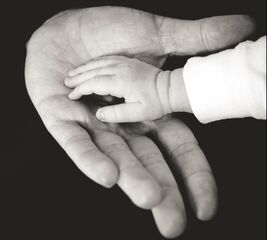 Today is also Father's Day in Canada, and so many will mark this day by remembering and honouring their fathers who have loved, cared for, guided, and raised them up. For many of us, this is a day of deep gratitude, and it is right that we give thanks along with them for those who truly embodied the gift of fatherhood. For some of us today is less straightforward, and perhaps more of a struggle... perhaps due to difficulties or losses in one's parental relationships, or for those whom the experience of pursuing fatherhood has been one of sorrow and disappointment. Along with them, we do well to acknowledge that family life is often a challenging road, and to listen to and honour their sufferings, which are also known and shared by our loving God. Whether today is a day of celebration for you, or a day of difficulty, or some mixture of both: may you receive God's blessing today exactly as it is needed. May God surround you and those you love, as well as all those who have loved and supported you, with peace, hope, fellowship, kindness, and understanding. Our service of Morning Prayer, Bulletin, & Sermon this week can be found here: Our All-Ages Song for this season can be found here: And our Songs for this week can be found here: Scripture Readings: 1 Samuel 15:34–16:13 | Psalm 20 | 2 Corinthians 5:6–17 | Mark 4:26–34
From now on, therefore, we regard no one from a human point of view; even though we once knew Christ from a human point of view, we know him no longer in that way. 2 Corinthians 5:16. The Kingdom of God is so often not what we expect. Today in our reading from Mark’s Gospel, we heard two parables of Jesus which can help us start to grasp and think about God’s Kingdom. Both involve seeds being sown… and growing in due time. A farmer plants, waits patiently, and harvests when the grain is ripe. A tiny mustard seed grows into a surprisingly large plant. Familiar images, reminding us of the mystery of life that surrounds us every day. The miracles we often look down on, because they seem so common. It can be easy for us at first glance to assume we know what these parables mean. They sound a lot like other proverbs and words of wisdom that we know: like “everything comes to those who wait”… or “from a tiny acorn comes a mighty oak”. Sayings meant to teach us about the importance of virtues like patience, and hope. But there’s more going on in these parables of Jesus than abstract moral lessons. He’s not simply offering words of wisdom for human life in general… He’s inviting us to rethink our own visions of God’s New Life… to catch a glimpse of how the Living God is at work in the world bringing about His Kingdom in unexpected ways. To help us understand what’s going on in these parables, let’s turn to our other readings today from 1 Samuel and 2 Corinthians. In first Samuel, we heard about Israel’s first royal transfer of power. Last week we heard how Israel demanded God give them a king like all the other nations, and so a man named Saul was chosen to lead them as their king. But now, despite his impressive and royal appearance, Saul had proven to be unfaithful, so the LORD sent Samuel the prophet to go to Bethlehem, to the house of a man named Jesse, and anoint one of his sons as another king for God’s people. But as the prophet admired the kingly look of Jesse’s eldest son, “the Lord said to Samuel, “Do not look on his appearance or on the height of his stature, because I have rejected him; for the Lord does not see as mortals see; they look on the outward appearance, but the Lord looks on the heart” (1 Sam. 16:7). Again, this sounds like another well known proverb: “don’t judge a book by its cover”. But the point here is not that Samuel simply needs to set aside his own prejudices (though that may have been worthwhile advice). The point is that the Living God who alone looks on and knows all hearts, was going to choose a king for His people, and Samuel was called to trust in God’s choice… even if that choice was not what he had expected. As the story goes on, we hear that seven of Jesse’s sons are passed over, until the least among them, the youngest, a boy named David is summoned… and chosen. Overlooked by his father, less impressive than his older brothers, the LORD draws David into His kingdom: from tending his father’s flocks, to shepherding all God’s people… the LORD unexpectedly transformed David’s life forever. This story highlights a pattern that flows throughout all of the Scriptures: God delights in choosing to work through humble and unexpected people… drawing them into His kingdom to take part in His New Life. Turning now to the second letter to the Corinthians, again we find God’s kingdom is revealed in unexpected ways. There is a lot packed into this passage that we won’t have the chance to discuss this morning, but there are a few crucial points that I think are important to highlight. The first is simply St. Paul’s relationship with the Christians in Corinth. Though he has spent much time and energy trying to build up their faith and love, it seems from his letters that St. Paul was not as impressive as many of them would have liked… not as charismatic, or flashy, as they wanted their leaders to be. But rather than trying to convince them of his own credentials or worthiness as an apostle, St. Paul points them instead to the Good News of Jesus, and the New Reality that it opens up for everyone. 2 Corinthians 6:14, “For the love of Christ urges us on, because we are convinced that one has died for all; therefore all have died. And he died for all, so that those who live might live no longer for themselves, but for him who died and was raised for them”. At the core of their faith (and ours!) is not a charismatic leader or gifted speaker… it is the love of Christ, who gave His life on the cross, dying and rising again for us all. Like a seed sown in the ground, Jesus chose to face the grave for us, but instead of it being the end, He turned it into a brand new beginning. Unexpectedly… through His death on the cross the Risen Jesus brings us New Life. God’s New Life, which changes how we see everything… and everyone. Verses 16-17: “From now on, therefore, we regard no one from a human point of view; even though we once knew Christ from a human point of view, we know him no longer in that way. So if anyone is in Christ, there is a new creation: everything old has passed away; see, everything has become new!” One of the implications St. Paul sees coming from the Gospel is that what Jesus has done for us changes how we must see each other… and even ourselves. Because of the new, unexpected reality Christ brought about in His resurrection, our old ways of seeing and treating each other must give way to God’s love: not based on outward appearances, or our natural preferences… but on what Christ has done for us all… and what He is still doing… drawing us into His kingdom through His Spirit at work in us. St. Paul had already begun to have his life transformed by the Gospel. He had once been a fierce enemy of the Church, until he encountered the Risen Lord… who changed his life forever, and sent him to go share the Good News with the world. More than anyone, St. Paul understood that trusting in the Risen Jesus changes how we see and treat the people in our lives. It’s not just a private belief… it’s the seeds of a whole new way of life… being planted in our hearts, and meant to bear fruit in all we do. It may not happen overnight… but the Gospel is meant to change us… to make us ready and able to actually live God’s way in the world. N.T. Wright puts it this way: “Paul had originally regarded even the Messiah in the old, prejudiced way. Now he was challenging the Corinthians to see everyone, himself included, not by the standards of their prevailing culture but in the light of the Messiah in whom all things had become new.”[1] God’s new creation is to be found right here, in our common life. Though it may seem at times insignificant in the story of our wider world, Christ turns our lives, our actions, our words… how we see and treat those around us… into seeds of His New Creation, through His Holy Spirit at work in us. We’ve come a long way from Mark chapter 4, and the two parables we started with, but these passages from 1 Samuel and 2 Corinthians help us to see how these parables fit into God’s story: First off, they do not stand alone… they point us to Jesus… to God’s Kingdom coming about at last, in and through Him. In Mark’s Gospel, even early on, Jesus was facing opposition. Last week we heard how the religious leaders, and even His family doubted Him… imagining God’s kingdom to look quite different from what He was up to. But this is exactly how God’s Kingdom comes about… surprisingly, unexpectedly, growing from what others might see as inconsequential beginnings… in ways that we are not able to predict, God’s New Creation was coming about. As God had chosen David, not because of appearances, but with an eye to his heart, his faithfulness, so Jesus, God’s Son was sent, even if he was not what other’s expected, to faithfully fulfill God’s rescue mission: drawing us into the action as well, to share in His New Creation. Remember: God delights in choosing to work through humble and unexpected people… like King David… like St. Paul… the other Apostles… and you and I! Can we believe that the Living God wants to work through people like us to share His kingdom? Can we believe that the New Creation Jesus has brought to life through His death and resurrection can take root and grow in our lives? Can we believe that the Spirit of God we claim is at work in us can do infinitely more than we could ask or even imagine? The parables in Mark invite us to plant our faith firmly in Jesus; to trust that in Him, God’s kingdom and New Creation are truly coming about… even if we cannot always see it’s fruit ‘til the time is ripe. To trust that the seeds Christ is sowing, in our actions and our lives, might seem small, but in His faithful power can make a world of difference. To trust that when we are tempted to look down on others, or even look down on ourselves, God’s New Creation in Jesus Christ is truly meant for everyone… drawing us all into the love of God, beyond all expectations. We have more than words of wisdom, or popular proverbs to rely on. We have the hope that comes from the Good New of Jesus Christ, the Risen Lord. And in Him, we can share in God’s kingdom and New Life, even today. I’ll end now with a poem that I think sums up this sermon well. It’s called “A Penny in God’s Pocket”. A penny in God’s pocket Of infinitesimal insignificance; Almost perfectly pointless. And yet… Hidden, not forgotten. Lovingly remembered, As holy fingers play. Toying with this secret Silly treasure Tossed by all the rest. A penny in God’s pocket. Almost nothing at all, But held by One Who makes all out of nothing. ___________ Amen. [1] N. T. Wright, Twelve Months of Sundays: Reflections on Bible Readings, Year B (London: Society for Promoting Christian Knowledge, 2002), 78–79. Our service of Morning Prayer, Bulletin, and Sermon this week can be found here: Our All Ages Song can be found here: And our Songs for this week can be found here: Scripture Readings: 1 Samuel 8:4–20 & 11:14–15 | Psalm 138 | 2 Corinthians 4:13–5:1 | Mark 3:20–35
[Jesus said] “Whoever does the will of God is my brother and sister and mother.” Mark 3:35 Are we truly seeking to do the will of God? Of course, we all want to answer ‘yes’. Especially here in Church. Of course we are! Why else would we gather here week after week… Sunday after Sunday? I’m not asking this question because I doubt anyone’s sincerity, or their faith, or their commitment to living God’s way in the world. I’m asking this question because I believe God’s word is asking us all this question. Through the Scriptures today, especially the reading from Mark’s Gospel, I believe our Lord is calling us to re-examine our daily responses to Jesus, as the One through whom God’s will is truly made known. But rather than putting us down, I believe we are being invited to draw nearer, to grow even more connected to God’s will at work in the world. In the third chapter of the Gospel of Mark, which we heard read this morning, we’re told of three different groups of people, each with their own response to Jesus. As we look a bit closer at this part of the Gospel story, we too are drawn into the action. How would we respond if we were there? How do these groups mirror what’s going on inside our hearts? The first group we’ll look at is the one that’s most hostile to Jesus and what He was up to: the Scribes. Who were the Scribes? One scholar describes them a lot like modern-day pastors… like me… “teachers of the people.” Peter Tan-Gatue says that “Mark’s Gospel presents the scribes as teachers of the people who have religious authority, especially over matters of law interpretation, observance and purity.”[1] They were those who had studied the Holy Scriptures, and so claimed to understand the will of the Living God… at least enough to help God’s people to live faithfully: to help them be true to the covenant, and be guided by God’s wisdom. And in their response to Jesus, Mark tells us that the Scribes from Jerusalem claim that He’s in league with demonic forces… with the Adversary, the Satan… and that the healing miracles, and exorcisms that Jesus was doing was evidence, not that God was with Him, but of some dark-hearted deception. We too can go down this route when we outright reject what Christ has called us to… when we place our own judgments about what’s right and what’s wrong above His word. We too can trust more in our own understanding about the will of the Living God, and condemn Christ’s teachings and actions as out of sync with the highest good. Maybe we wouldn’t say this out loud… but actions speak louder than words. Are there ways we are rejecting the way of Jesus by how we live each day? By choosing to ignore or contradict His clear commands? The second group from our Gospel reading today is one that’s much closer to Jesus, and yet they too have a hard time with what He’s up to: this group is His family. Specifically, Mark tells us “his mother and his brothers” (Mark 3:31) had come to “restrain him” (Mark 3:21). To seize, contain… to hold him back. Why? Because they thought He was mad. The things He was doing and saying were so unusual, so unexpected, they thought He had lost His mind, and so they came to reign Him in. In many traditional cultures a family’s honour was extremely important, and any behaviour that threatened a family’s good name would have been a major concern. It seems likely that Mary and her other children were getting worried that Jesus was shaming them… publicly putting their place in the wider community at risk. And so, though they surely cared about Him, they also wanted to control Him, to keep Him from running amok, and ruining their reputations too. Is this ever a temptation we face? Do we ever try to tame Jesus? To keep Him contained, worried about what others might think about us? Are we ashamed to be associated with Him? Does that fear drive us to restrain His influence on how we live in the world? This one can be really hard for us these days, even in the Church. Our current culture doesn’t hold a high view of publicly practicing our faith… after years of being told religion is only a private matter. But the way Jesus lived out the will of God, and the way He calls us to live means letting God’s kingdom shape every aspect, every corner of our lives… living each day, at work, at home, at school, with friends, with strangers, as agents of peace, integrity, generosity, forgiveness, and self-giving love. This way of life stands out in our world… which often makes us uncomfortable. Maybe we want to take Christ seriously… we want to follow His beautiful way… but it all seems so strange, so crazy, we’re not sure it’s possible. Are there ways we’re acting like His mother and brothers, trying to keep Him in check? Finally, there’s the third group: the crowd drawing near to Him. Those who had felt His healing touch, those who had tasted the freedom He gives, those who had heard His words, experienced His welcoming love, and felt their hearts coming alive with hope. This group didn’t have all the answers, they were just drawing closer to Him. Wanting more of what He had to offer… seeking to share in what He was up to. This crowd was a new community finding their way to God’s Kingdom… finding their way to God’s King… and in finding Him, they found themselves drawn into God's family. “And looking at those who sat around him, he said, ‘Here are my mother and my brothers! Whoever does the will of God is my brother and sister and mother.’” (Mark :34-35). In that crowd was found the beginning of the Christian Church, the community of ordinary people drawn to Christ in faith. What binds the Church together, including our Parish here in Gondola Point, is not our religious practices, or our family ties, or friendships… as beautiful, and life-giving, and blessed as they may be. What unites us together as God’s family is our devotion to doing God’s will: drawing near in faith to Jesus Christ, the Risen Lord of all; learning from Him what it means to truly live God’s way in the world; and through His Spirit at work in us, putting God’s will into practice. Like the crowd in Mark Chapter 3, none of us have it all figured out. We’re all on our way to a more complete commitment to Jesus our Lord. We will all find ourselves struggling at times to keep from rejecting His will for us, wanting to go our own way, instead of trusting Him to lead us. We’ll all find ourselves tempted to hide from the strangeness of His Kingdom, even if that strangeness is exactly what our world desperately needs. But even so, Christ calls us all to draw closer to Him. To share in the life of His Church, the place where we learn to live His way together. To let the truth that Jesus is Lord of all, and our Lord too, take hold of and transform our lives, so we can live God’s way in the world. Mark’s Gospel wants us to draw near to Christ, to choose to place our trust in Him, and through Him to seek, and find, and do the will of the Living God. I’ll end now with a well known quote from the author and lay theologian C.S. Lewis, from his little book entitled Mere Christianity: “You must make your choice. Either this man [Jesus] was, and is, the Son of God: or else a madman or something worse. You can shut Him up for a fool, you can spit at Him and kill Him as a demon; or you can fall at His feet and call Him Lord and God. But let us not come with any patronizing nonsense about His being a great human teacher. He has not left that open to us. He did not intend to.”[2] Amen. [1] Peter Tan-Gatue, “Scribe,” ed. John D. Barry et al., The Lexham Bible Dictionary (Bellingham, WA: Lexham Press, 2016). [2] C.S. Lewis, Mere Christianity, in The Complete C.S. Lewis Signature Classics (New York, NY: HarperOne, 2002), p. 50-51. Our service of Morning Prayer, Bulletin, and Sermon this week can be found here: And our Songs for this week can be found here: |
Rev. RObRev. Rob serves as the Priest-in-Charge at St. Luke's Gondola Point, and as the School Chaplain at Rothesay Netherwood School Archives
June 2024
Categories
All
|
|
5 Quispamsis Road, Quispamsis NB, E2E 1M2
Mail to: 12 Quispamsis Road, Quispamsis NB E2E 1M2 |
Contact Us
Parish Phone: 506-847-3670 | www.stlukesgp.ca | www.facebook.com/StLukesGP/ Rev. Rob: 506-608-1772 | [email protected] |
Proudly powered by Weebly

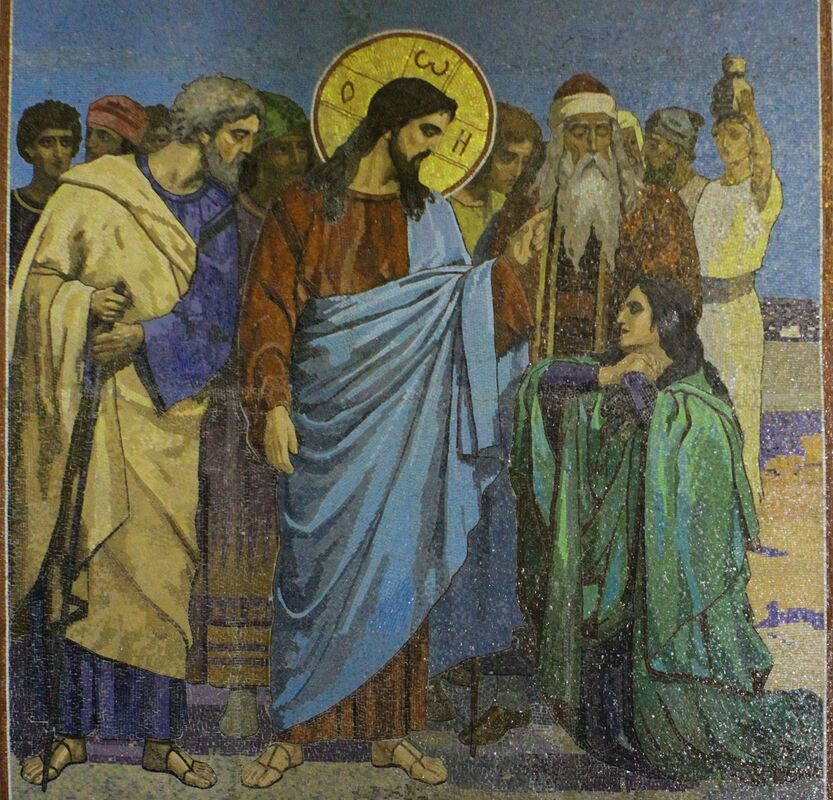
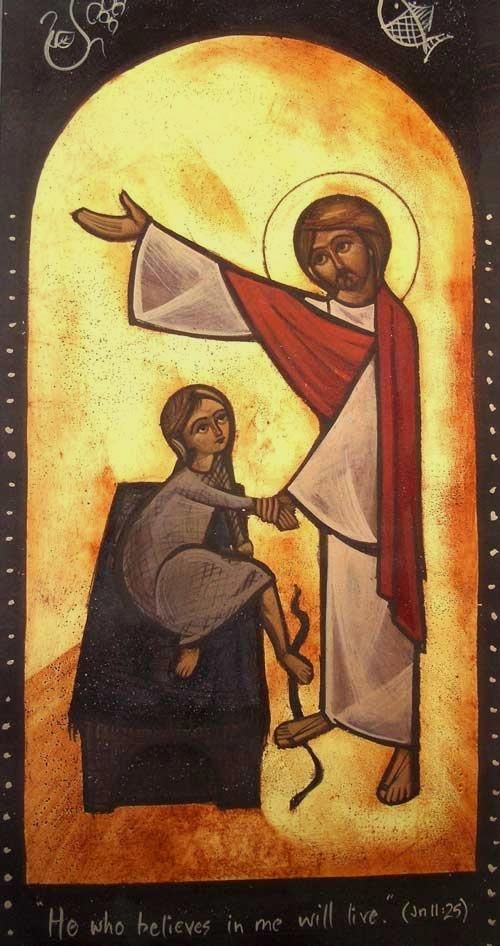

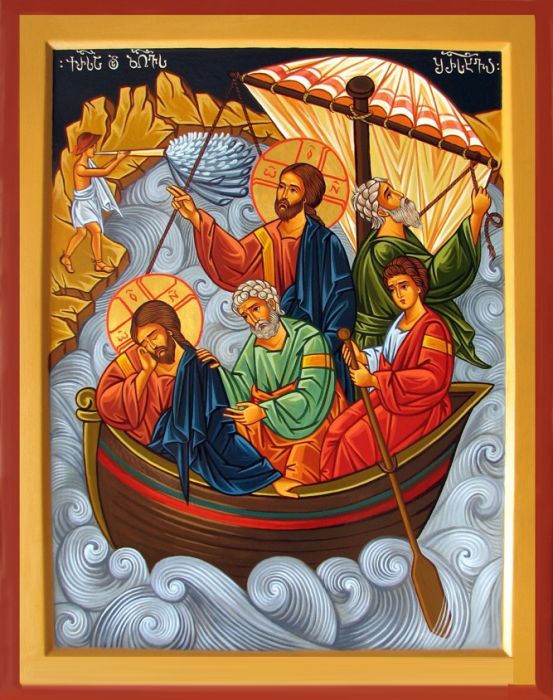

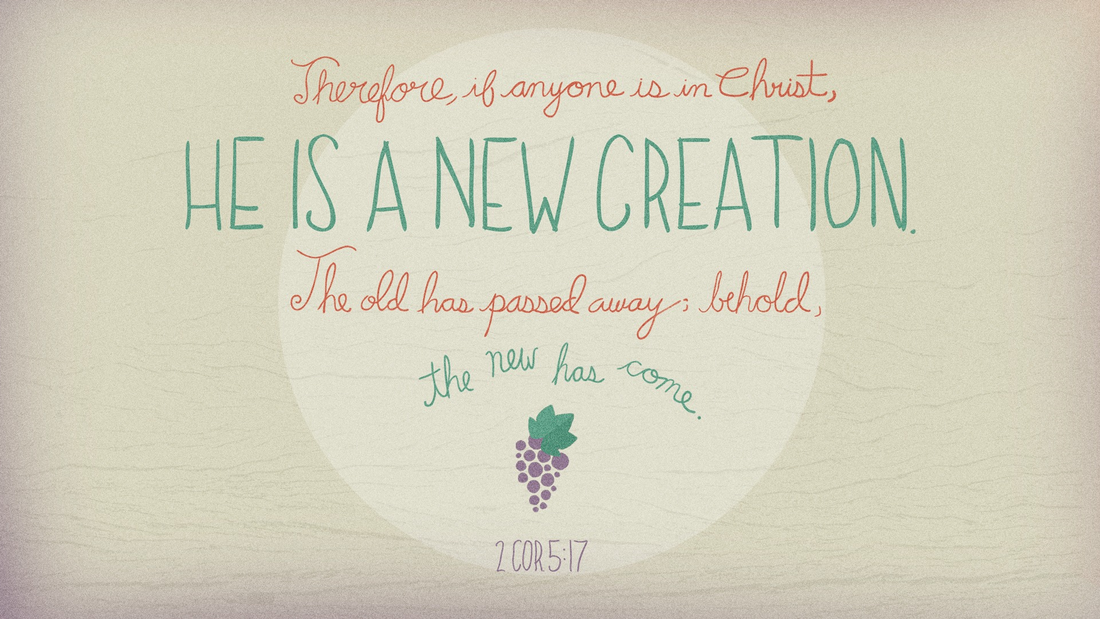


 RSS Feed
RSS Feed
